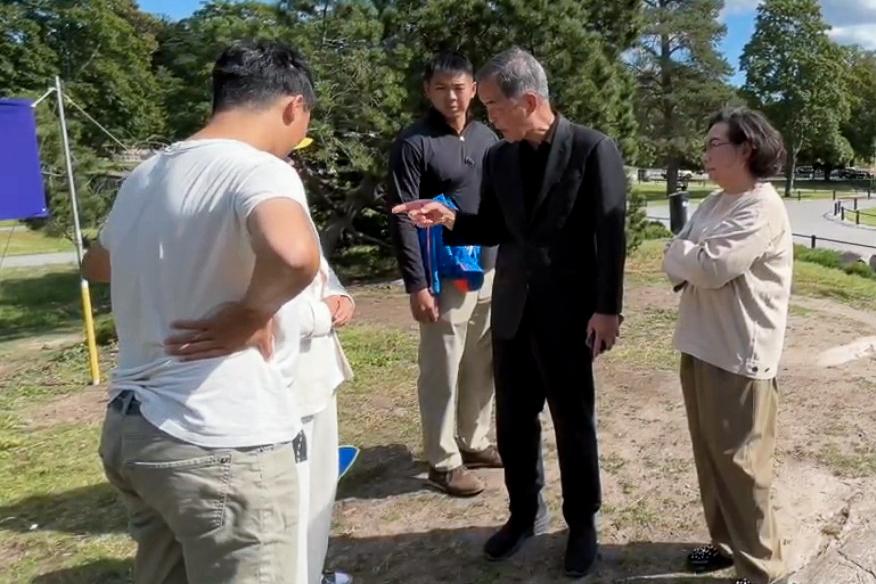Little Wang Yue died on Oct. 21, but the issues raised by the ending of her short life are not going away.
Opinion
A Child’s Death, a Nation’s Suffering, and a Party’s Culture
The 19th person to come upon Yue Yue in the alley was a middle-aged woman named Chen Xianmei.

A man walks around Yueyue seconds after she had been run over by a mini-van. Screenshot NTDTV
|Updated:






